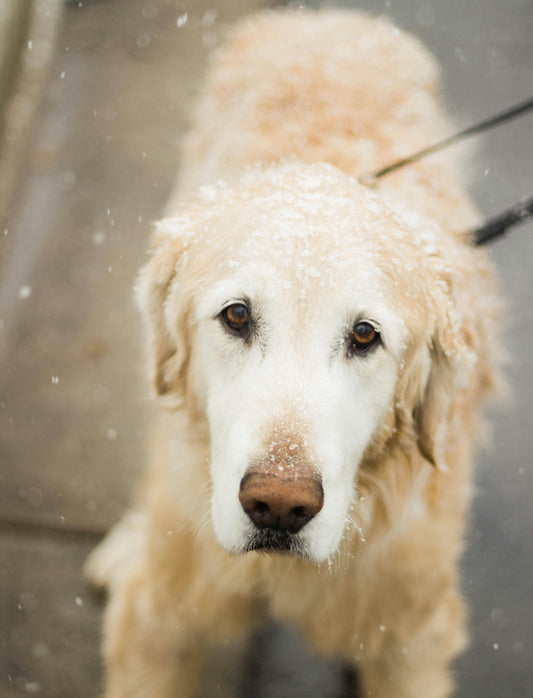French Bulldogs are cherished companions known for their playful nature and affectionate demeanor. Recognizing the signs of allergies in French Bulldogs is crucial for their health and well-being. Owners must remain attentive to subtle changes in behavior or physical condition that could indicate an allergic reaction.
Common symptoms can include itching, skin irritations, and gastrointestinal issues. Observing these signs early can lead to prompt veterinary care and a better quality of life for the dog. Understanding these indicators helps in managing allergies effectively.
As these dogs often have sensitive systems, being proactive about their health is essential. Familiarity with the signs of allergies can help ensure that French Bulldogs receive the necessary treatment and care they deserve.
Recognizing Allergic Reactions in French Bulldogs
Identifying allergic reactions in French Bulldogs requires attention to both physical symptoms and behavioral changes. Recognizing these signs early can lead to prompt treatment and improved comfort for the dog.
Common Symptoms
French Bulldogs may exhibit several physical signs of allergies. Common symptoms include:
- Itchy skin: Persistent scratching or biting at the skin can indicate an allergic reaction.
- Red or inflamed skin: Look for areas of redness, especially around the paws, ears, and belly.
- Ear infections: Frequent shaking of the head or scratching at the ears can suggest an allergy-related ear issue.
- Watery eyes: Excess tear production or redness around the eyes can be a sign of allergies.
- Gastrointestinal issues: Vomiting or diarrhea may occur in response to allergens.
These symptoms often result from environmental factors, food, or fleas. If a French Bulldog shows any combination of these signs, it is essential to consult a veterinarian for evaluation.
Behavioral Indicators
Behavioral changes can also suggest that a French Bulldog is experiencing an allergic reaction. Key indicators include:
- Increased anxiety or restlessness: The dog may appear more agitated than usual.
- Changes in appetite: A dog may eat less or refuse food altogether when uncomfortable.
- Lethargy: Unusual tiredness or lack of energy can signal an allergy affecting their well-being.
- Frequent licking: A dog may lick its paws or other areas excessively due to itching.
Observing these behavioral alterations alongside physical symptoms can provide a clearer picture of a dog's allergic response. Early detection can lead to appropriate care and alleviation of discomfort.
Causes of Allergies in French Bulldogs
French Bulldogs can suffer from various allergies arising from environmental factors, dietary elements, and skin contact. Identifying the specific causes is essential for effective management and treatment.
Environmental Allergens
French Bulldogs often react to environmental allergens such as pollen, dust mites, mold, and pet dander. These substances can trigger allergic reactions, leading to symptoms like itching, sneezing, and watery eyes. Seasonal allergies are common, with pets experiencing flare-ups primarily during spring and fall when pollen counts are high.
Managing these allergies involves minimizing exposure. Regular cleaning of living spaces, using air purifiers, and keeping the dog away from heavily infested areas can help reduce symptoms. Antihistamines prescribed by a veterinarian may alleviate discomfort during allergy season.
Food Allergies
Food allergies in French Bulldogs commonly manifest as skin issues, gastrointestinal upset, or both. Common allergens include beef, chicken, dairy, eggs, and grains. Symptoms may include itching, redness, and chronic ear infections.
Food allergies can be diagnosed through an elimination diet, where specific ingredients are removed and then gradually reintroduced. Identifying the offending food is crucial for managing these allergies and often requires ongoing dietary adjustments and careful ingredient selection in their food.
Contact Dermatitis
Contact dermatitis occurs when French Bulldogs come into direct contact with irritants or allergens. Common culprits include certain fabrics, chemicals, or even plants. Symptoms typically include localized redness, irritation, and itching on the skin.
Preventing contact dermatitis involves identifying and removing the irritant. Regular inspections of living areas, monitoring dog bedding, and choosing hypoallergenic cleaning products can minimize risks. If contact dermatitis persists, a veterinarian may recommend topical treatments or other therapies to soothe the skin and promote healing.
Diagnosis and Testing for Allergies
Identifying allergies in French Bulldogs requires a proper diagnosis and effective testing methods. This ensures that the specific allergens are identified and addressed appropriately.
Veterinary Examination
A thorough veterinary examination is crucial for diagnosing allergies in French Bulldogs. A veterinarian will first review the dog's medical history, noting any previous allergic reactions or health issues.
During the physical examination, the vet will look for symptoms such as:
- Skin irritation or rashes
- Ear infections
- Gastrointestinal issues
Following the examination, the veterinarian may recommend additional tests or consultations with a veterinary dermatologist to pinpoint the cause of the allergy. This comprehensive approach is essential for developing an effective treatment plan tailored to the individual dog's needs.
Allergy Testing Methods
There are several methods to test for allergies in French Bulldogs. The two most common are intradermal skin tests and serum antibody tests.
Intradermal Skin Tests involve injecting small amounts of allergens into the skin. The vet observes for reactions, indicating specific sensitivities.
Serum Antibody Tests assess the levels of IgE antibodies in the blood. Elevated levels suggest an allergic response to certain allergens.
Both methods help determine the exact allergens affecting the French Bulldog. Choosing the right method often depends on the dog’s health status and the vet's preference.
Treatment Strategies
Managing allergies in French Bulldogs requires a combination of medical treatments and lifestyle adjustments tailored to individual needs. These strategies help alleviate symptoms and improve the dog's quality of life.
Medical Treatments
Veterinarians often prescribe antihistamines to relieve itchiness and inflammation. Common options include diphenhydramine and cetirizine, which can be effective for seasonal allergies.
Corticosteroids may be used for more severe cases to reduce inflammation and immune responses. It's essential to monitor for side effects when using these medications.
In some situations, prescription shampoos containing oatmeal or aloe vera can help soothe the skin. These treatments can be used regularly to manage symptoms.
For persistent allergy cases, immunotherapy—commonly known as allergy shots—can help desensitize the dog to allergens gradually over time. Regular check-ups are crucial to adjust the treatment as needed.
Lifestyle Adjustments
Keeping the dog's environment clean can help minimize allergens. Regularly vacuuming and washing bedding reduces exposure to dust mites and pollen.
Grooming plays a significant role. Frequent brushing helps remove loose fur and dander. Dogs may benefit from baths with hypoallergenic shampoos to soothe irritated skin.
Diet is another important aspect. A specialized diet free from common allergens can improve symptoms. An elimination diet may be necessary to identify specific food allergies.
Limiting outdoor exposure during peak pollen seasons can also make a difference. Creating a designated indoor space for the dog helps ensure a comfortable environment, especially during allergy flare-ups.








